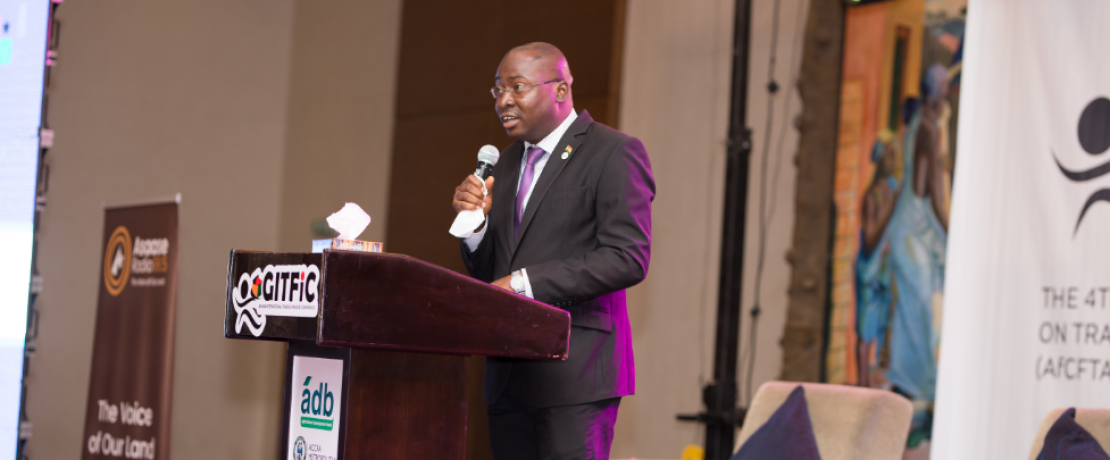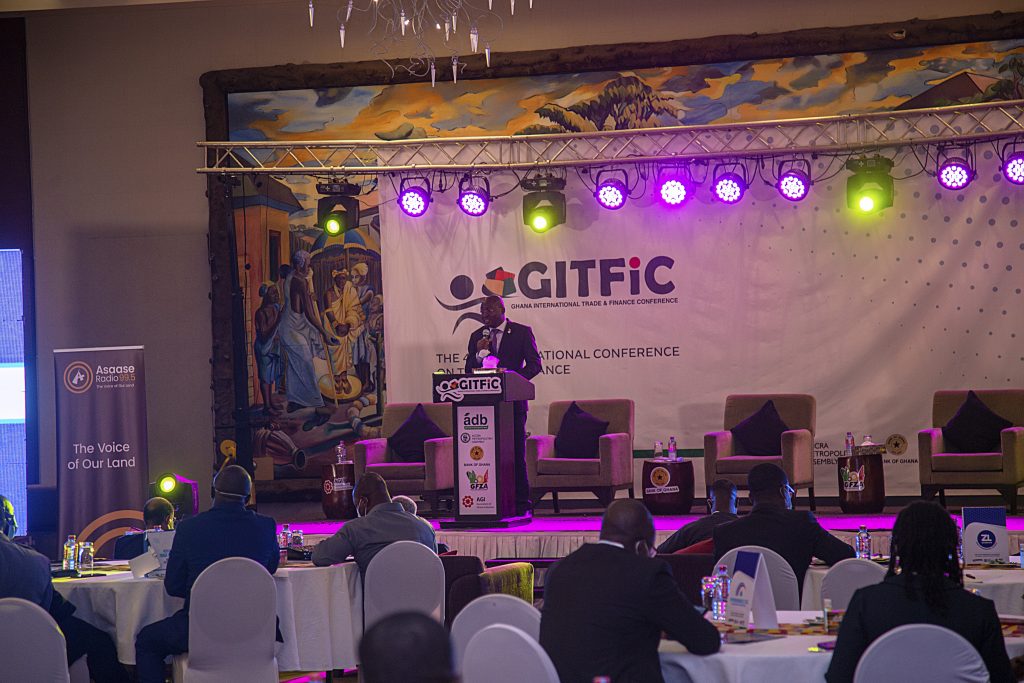Are we going to gain or lose under AfCFTA?—AGI Greater Accra asks

The Greater Accra Chairman of the Association of Ghana Industries (AGI) says Ghanaian industries should prepare themselves to maximize the benefits of the African Continental Free Trade Area (AfCFTA) agreement and not be left out.
“As industry we want to be sure we are ready to take advantage of this initiative. We are aware that this AfCFTA agreement would naturally bring forth winners and losers. We in industry are keen to be part of the winners,” says Mr. Tsonam Cleanse Akpeloo.
He made this observation during the fourth Ghana International Trade and Finance Conference (GITFiC) at the Movenpick Ambassador Hotel, Accra.
In his efforts to see Ghanaian industries reaping the benefits of AfCFTA, Mr. Akpeloo called on the Ghana Government “to speed up some of the issues we have been addressing in order to remain winners.”
Mr. Akpeloo explained that by January 2021, 90 percent of dutiable products would be liberalized, which meant that producers in Africa who met the requirement could export to any AfCFTA member country without quota or duties. “So the danger is having our market flooded with products we already have. The good thing is we also have the opportunity as industry to export to other countries,” he explained.
The Greater Accra AGI Chairman also said the cost of doing business in Ghana was high as compared to other parts of Africa, which meant that few companies actually paid taxes.
“We in industry believe strongly that, it is high time the tax network is broadened in order to allow a lot more companies to pay,” he added.
In praising the Ghana Government for keeping the cost of power down, he insisted that the cost was significantly high compared to other countries insub-Saharan Africa, adding that the cost of power alone was about 30% of the entire production cost so the need to cut it down.
Another area he thought needed intervention if Ghanaian industries were going to take advantage of AfCFTA was the lending environment, explaining that only about 30% of monies giving out as loans went to the manufacturing sector with most of the funds going into training and commerce.
“But for us to take active part of the AfCFTA, we have to produce, and government should establish a development fund as indicated by the finance minister. If we have a bank that allows for loans and financing, it would go a long way to push industry to be ready,” Mr. Akpeloo explained.
He explained that Ghanaian industries were among the best in the sub-region, with pharmaceuticals, salt production and textile production being some of the Ghanaian competitive advantage.
Mr. Akpeloo observed that every country that had developed did so on the back of their citizen’s active participation in their industrial space.” This was not a call for protectionism; what we are asking for is to help build capacity for Ghanaian entrepreneurs,” he said.

